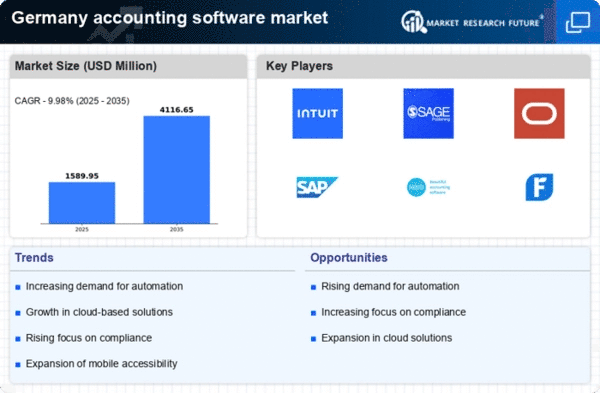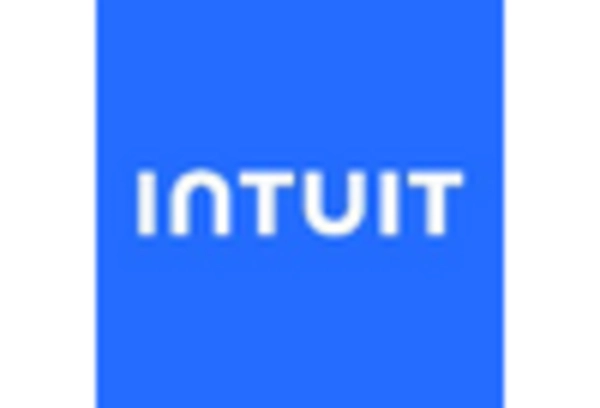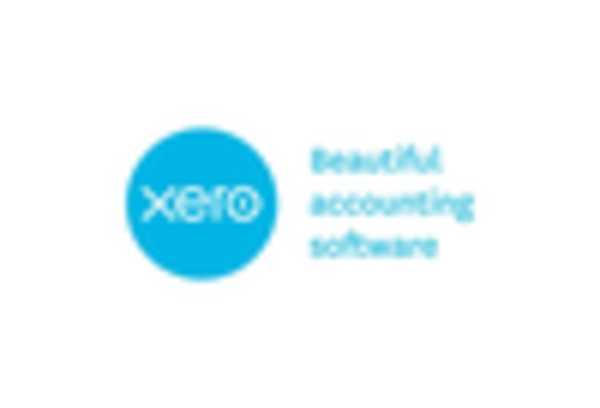Regulatory Changes and Compliance Requirements
The accounting software market in Germany is significantly influenced by evolving regulatory changes and compliance requirements. Businesses must navigate a complex landscape of financial regulations, which necessitates the use of robust accounting software that can ensure compliance. The introduction of new tax laws and reporting standards has created a demand for software solutions that can adapt to these changes seamlessly. Approximately 55% of companies in Germany cite compliance as a primary factor in their software selection process. This ongoing need for compliance-driven solutions is shaping the development and features of products within the accounting software market.
Growing Adoption of Mobile Accounting Solutions
The rise of mobile technology is significantly influencing the accounting software market in Germany. With the increasing reliance on smartphones and tablets, businesses are seeking mobile accounting solutions that enable them to manage finances on-the-go. This trend is particularly prevalent among small to medium-sized enterprises (SMEs), which often require flexibility in their operations. Recent statistics indicate that around 40% of SMEs in Germany have adopted mobile accounting applications, reflecting a shift towards more accessible financial management tools. As a result, software providers are focusing on developing mobile-friendly platforms to cater to this growing demand.
Emphasis on Cost Efficiency and Budget Management
Cost efficiency remains a critical driver in the accounting software market in Germany. Companies are increasingly seeking solutions that not only streamline their accounting processes but also help in effective budget management. The pressure to reduce operational costs has led many organizations to adopt software that automates routine tasks, thereby minimizing the need for extensive manual input. Data suggests that businesses utilizing advanced accounting software can reduce their operational costs by up to 30%. This focus on cost efficiency is prompting software developers to innovate and provide more value-driven solutions in the accounting software market.
Increasing Demand for Real-Time Financial Insights
The accounting software market in Germany is experiencing a surge in demand for real-time financial insights. Businesses are increasingly recognizing the necessity of having immediate access to financial data to make informed decisions. This trend is driven by the need for agility in financial management, allowing companies to respond swiftly to market changes. According to recent data, approximately 65% of German businesses prioritize real-time reporting capabilities in their accounting software solutions. This shift towards real-time insights is reshaping the accounting software market, as vendors are compelled to enhance their offerings to meet these evolving expectations.
Integration of Advanced Analytics and Reporting Tools
The integration of advanced analytics and reporting tools is becoming increasingly vital in the accounting software market in Germany. Businesses are recognizing the value of data-driven decision-making, which necessitates sophisticated analytical capabilities within their accounting solutions. The ability to generate detailed reports and insights from financial data is seen as a competitive advantage. Recent surveys indicate that around 70% of German firms consider advanced reporting features essential when selecting accounting software. This trend is pushing software providers to enhance their offerings with analytics capabilities, thereby transforming the landscape of the accounting software market.

















